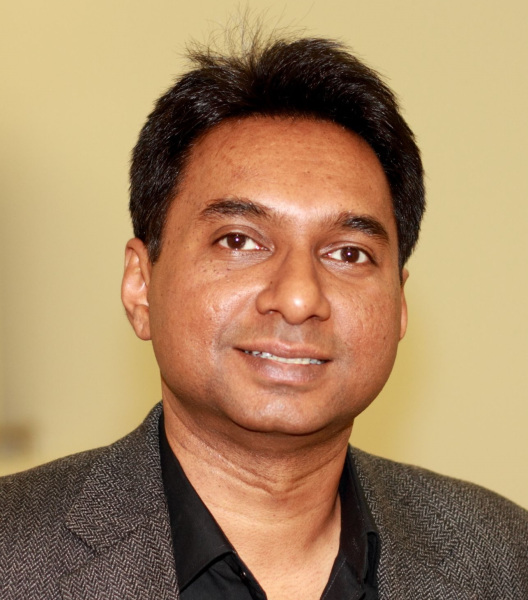The 30th COP (COP30) of the UNFCCC will take place from 10 to 21 November 2025 in Belém, Brazil. It is also the first time the summit is held in the Amazon region, a symbolic decision that represents the double crisis of climate change and social and economic inequality. While its geographical proximity puts climate vulnerable communities and ecosystems into a harsh spotlight, the conference threatens to replay the disappointments of COP29, unless it also tackles the deep-rooted inequalities in finance, representation, and implementation.
For developing countries like Bangladesh, where every cyclone, flood, and lost crop is a human catastrophe, COP30 is not a photo-opportunity – it is a test. The question is whether the summit would provide the legally binding climate finance, mutually beneficial solutions and inclusive governance and that countries on the frontline of the climate emergency desperately require – or continue the practice of promising much while delivering little.
The promise vs. the peril
Belém’s selection is no mere geographic novelty. Hosting COP30 there is a deliberate symbol of solidarity with vulnerable communities, indigenous peoples, and frontline ecosystems. But this symbolism is now being tested by conflicts of interest – Brazil’s own oil exploration around the Amazon threatens global voices on fossil fuel phase-out and forest conservation.
Adding to the tensions is the infrastructure that went up for the summit. A recently paved four-lane highway through the protected rainforest – the Avenida Liberdade – is a potential minefield as well, as it is adding to deforestation in a critical carbon sponge. This contrast – emphasizing vulnerability and at the same time undercutting this vulnerability – mirrors wider COP30 dynamics.
Also, at the Bonn preparatory talks in June 2025, key obstacles were exposed: few countries have submitted updated Nationally Determined Contributions (NDCs), and the ones submitted appear insufficient to safeguard the 1.5 °C target. Logistical constraints are another concern. Belém faces accommodation shortages, worsening cost barriers for lower-income delegations. There have been demands for UN-subsidized lodging, but Brazil declined.
Finance: The continuing fracture
COP29, in Baku, had pledged only US$300 billion per year by 2035 in climate finance – not nearly enough for the $1 trillion+ target or the one demanded by developing countries. Article 9.1 of the Paris Agreement is yet to be realised and is expected to dominate the COP30 agenda. Developing countries are demanding that a binding public finance commitment be restored, instead of depending on the opaque regime of private funding.
The “Baku to Belém Roadmap” is a direct attempt to bridge this gap by mobilizing US$ 1.3 trillion annually by 2035, yet skepticism abounds regarding its enforceability without anchored public finance.
Implementation over negotiation
In a context of institutional frustration, Brazil is calling for a new narrative: COP30 should focus less on stalled negotiations and more on implementation. Now comes this “twin mantra” of concrete climate action as opposed to endless diplomacy.
But this shift is easier said than done. Civil society and experts warn the summit must result in tangible outcomes on areas such as fossil fuel phase-out, deforestation, adaptation and finance – not merely words.
Implications for Bangladesh
As one of the most climate-vulnerable countries in the world, Bangladesh interprets the implications of COP30 through several intersecting prisms. And the country’s urgent needs – to protect against floods, to build resilience against the cyclones and to have climate-resilient agriculture – will be heavily dependent on secured adaptation finance. However, the absence of clear commitments under Article 9.1 and without an effective finance roadmap, Bangladesh’s lagging support is running the risk of leaving Bangladesh more exposed to devastating climate shocks in the years to come. Without equitable load-sharing and forecastable supplies of public finance, credibility of the global climate regime is on the line.
Another concern, in the face of stalled global public finance, is the dependence on private capital – either as loans or investments – which can end up with Bangladesh taking on more debt, as opposed to grants. It has long-standing implications for economic stability and could impede real efforts at adaptation. But for a country already squeezed by fiscal tightness, the move from public to privatized financing mechanisms will not be enough and might even be damaging.
These are challenges that are exacerbated by access and representation gaps. Limited scope to utilize improved NDC submission platforms, limited representation in side events, and the prohibitive cost accessibility hampers the country’s capacity to effectively campaigning on the global stage. The logistics of COP30 being in Belém seem to make it easier for richer delegations to gain access, marginalising even more those from developing countries.
The Amazon setting also has a poignant resonance with Bangladesh’s own ecological systems, especially the Sundarbans, increasingly under the threat of rising sea levels due to climate change and the pressures of industrial exploitation. If the Amazon’s preservation has global importance, so too does the safeguarding of Bangladesh’s mangrove forests and delta systems. The struggles are closely linked to each other, showing that climate justice is a common responsibility beyond regions.
In lieu of a conclusion
COP30 is of huge symbolic value. It is a strong symbolic statement to host the summit in the Amazon, but symbolism alone cannot replace the real commitments and actions that vulnerable nations so urgently need.
For Bangladesh and its peers, COP30 must be more than stagecraft; it must be a summit of substance. That requires enforcing public grants, not loans; re-balancing access and representation; and embedding accountability into climate finance mechanisms. If Brazil’s COP presidency commits to implementation over rhetoric, protects ecosystems instead of fragmenting them, and centers climate equity instead of marginalizing it, COP30 could be a moment of promise. Otherwise, the Amazon’s symbolic weight will be wasted, and vulnerable countries like Bangladesh will remain stranded – climate-resilient in their rhetoric, but not in their reality.
Therefore, COP30 has a duty to go beyond tokenism. The conference should be a time of delivering action, mobilization, and transparency through accountable, enforceable climate finance, equitable participation and concrete adaptation action. For COP30 to be the summit of substance rather than a further lost opportunity, it is only in securing these outcomes that can be remembered.



RECENT COMMENTS